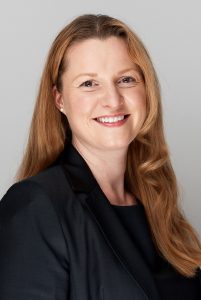
Speaker: Dr. Katja Schenke-Layland
Affiliation: Fraunhofer Institute for Interfacial Engineering and Biotechnology IGB and Eberhard Karls University Tübingen
Translating Scientific Discoveries to Biomedical Applications
Regenerative medicine offers unique opportunities for developing new, potentially personalized, therapeutic approaches to treat and ultimately prevent life-threatening diseases. This includes strategies for the replacement, repair, and regeneration of tissues and organs damaged by disease and/or traumatic injury. It is the fabrication of replacement tissues and organs that here is called tissue engineering. This represents a rapidly growing interdisciplinary field within regenerative medicine involving biology, chemistry, physics, engineering and medical sciences. A major focus of tissue engineering is the creation of ex vivo manufactured tissues and organs, even multi-organ systems, in order to explore fundamental questions of (stem) cell, matrix and developmental biology. These in vitro manufactured systems can also be used as sophisticated tissue and organ test systems to either reduce or even replace the need to use test animals.
The monitoring of tissue-engineered constructs during their in vitro maturation or post-implantation in vivo is highly relevant for test system or graft quality evaluation. While traditional methods for studying (stem) cell and extracellular matrix components in engineered tissues and organs such as histology, immunohistochemistry or biochemistry require invasive tissue processing, resulting in the need to sacrifice the in vitro-engineered structures, multiphoton imaging and Raman microspectroscopy allow the non-invasive, marker-free monitoring. Moreover, Raman spectroscopy can also be used to generate biochemical profiles of living cells. Different cell phenotypes and cell fate decisions can be therefore assessed based on their Raman spectroscopic signature.
My presentation will be an overview of our work utilizing extracellular matrix elements as biomaterials for tissue engineering and regenerative medicine applications. I will further present how we mimic a more physiological microenvironment in vitro by implementing bioreactors. To conclude, I will summarize our work on the utilization of novel marker-free monitoring modalities for basic and applied biomedical research and disease diagnosis.
Biography:
Katja Schenke-Layland currently holds a dual appointment as a Professor (W3) of Biomedical Technologies and Regenerative Medicine at the University Women’s Hospital at the Eberhard Karls University Tübingen (UKT), and the acting Director and Department Head at the Fraunhofer Institute for Interfacial Engineering and Biotechnology (IGB) in Stuttgart, Germany. Katja is also an Adjunct Associate Professor in the Department of Cardiology at UCLA, USA and is an Executive Editor for Advanced Drug Delivery Reviews (ADDR), which is, with an impact factor of 15.6, one of the top journals in the field of advanced gene and drug delivery. Katja is the Deputy Study Dean for Medical Technology at the UKT and sits on the board of multiple journals and biomedical associations. Katja is a biologist with a main interest in stem cell and extracellular matrix biology. Her work focuses on the translation of developmental processes into clinically relevant biomaterials and regenerative therapy strategies, and the development of diagnostic tools to discover and validate therapeutic candidates and diagnose disease.
Date/Time:
Date(s) - Apr 27, 2017
12:00 pm - 1:00 pm
Location:
Engineering V, Room 2101
410 Westwood Plaza Los Angeles CA 90095
